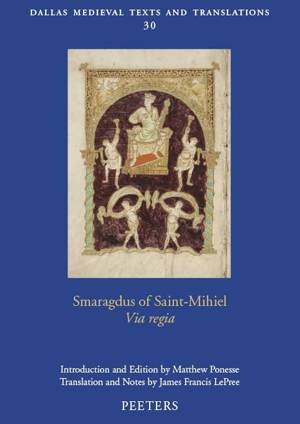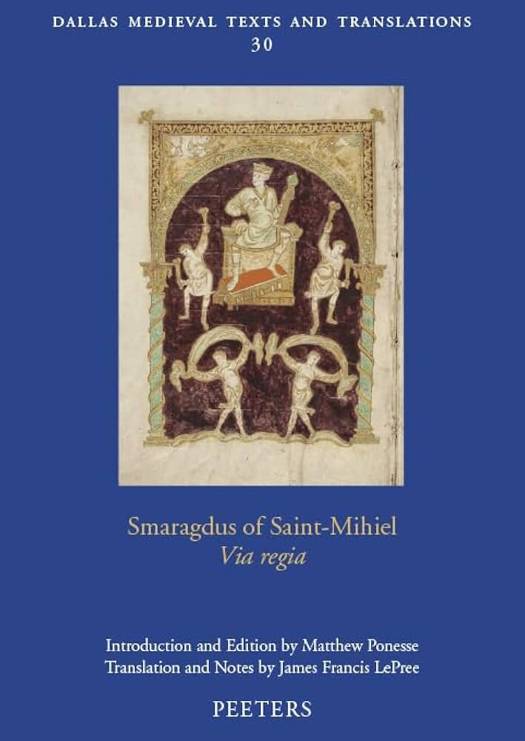
- Retrait gratuit dans votre magasin Club
- 7.000.000 titres dans notre catalogue
- Payer en toute sécurité
- Toujours un magasin près de chez vous
- Retrait gratuit dans votre magasin Club
- 7.000.0000 titres dans notre catalogue
- Payer en toute sécurité
- Toujours un magasin près de chez vous
Description
Smaragdus of Saint-Mihiel's Via regia is among the first "mirrors of princes" composed in the Western tradition. Smaragdus wrote this book of advice in the early ninth century, likely for Charlemagne's son, Louis the Pious, during the years that Louis ruled Aquitaine. It contains thirty-four chapters on the proper conduct expected of a Christian king, addressing such topics as the necessity of peace, justice, and good judgment. While Smaragdus's contemporaries developed sophisticated theories of government, Smaragdus emphasized the cultivation of virtues and presented a biblical model for rulership. Although the Via regia has received considerable attention in modern scholarship for the information it provides about Carolingian rulership and its author, this is the first critical edition and full English translation of the text. The edition utilizes the three surviving complete manuscripts of the text, an earlier edition that preserves the text of a now-lost manuscript, and two further manuscripts containing excerpts. The critical apparatus presents variants found in these copies, providing a full view of the textual history. Unlike the earlier edition, it includes prefatory material found in the three surviving complete manuscripts, which is significant for the light that it sheds on Smaragdus's goals and intended recipient. In addition, the volume offers a comprehensive look at Smaragdus's life and work. The introduction discusses the author, the historical circumstances surrounding the text's composition, the manuscript evidence, and the textual work involved in producing the critical edition. The notes to the translation identify Smaragdus's sources and compare the Via regia with Smaragdus's other works, offering insight into his original exegetical method of adapting his sources into lessons applicable for his audience. The volume also contains a table noting similarities in content with Smaragdus's Diadema monachorum (Crown of Monks) and the Sententiae of Isidore of Seville and Taio of Saragossa.
Spécifications
Parties prenantes
- Auteur(s) :
- Editeur:
Contenu
- Nombre de pages :
- 255
- Langue:
- Anglais
- Collection :
- Tome:
- n° 30
Caractéristiques
- EAN:
- 9789042950405
- Date de parution :
- 31-12-23
- Format:
- Livre broché
- Format numérique:
- Trade paperback (VS)
- Dimensions :
- 170 mm x 240 mm
- Poids :
- 538 g

Les avis
Nous publions uniquement les avis qui respectent les conditions requises. Consultez nos conditions pour les avis.






